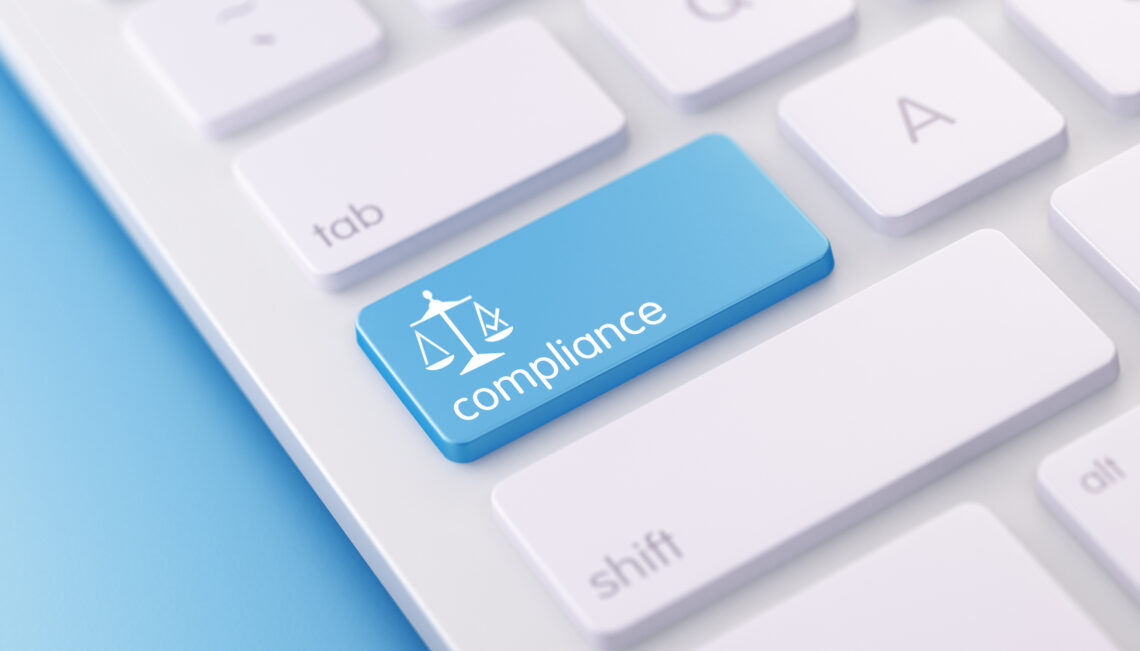Regulatory compliance is certainly the less glamorous aspect of entrepreneurship, so it’s typically not discussed as much. However, for small business owners, understanding and adhering to a myriad of regulations is not just a legal necessity but a cornerstone of sustainable business practice.
This guide aims to demystify the complexities of compliance, offering a roadmap to navigate the intricate landscape of rules and regulations that govern small business operations.
Understanding Compliance: The Basics
Compliance, in the context of a small business, refers to the process of adhering to various laws, regulations, and guidelines applicable to your specific industry and operations. That includes:
Tax Laws
Tax compliance is one of the most critical areas for any small business. This includes federal income taxes, state and local taxes, sales taxes, and payroll taxes. Understanding the nuances of tax laws is essential to avoid underpayment or overpayment.
For instance, tax deductions and credits can significantly lower your tax bill, but they require meticulous record-keeping and understanding of what is allowable under the law. Additionally, staying updated with changes in tax laws, such as those related to employee benefits or home office expenses, is crucial.
Employment Regulations

If your small business employs staff, you need to comply with various employment laws. These include minimum wage laws, overtime pay, employee benefits, and workplace safety regulations.
You also need to ensure compliance with anti-discrimination laws, which cover hiring, employment practices, and workplace environment. It’s essential to understand the nuances of classifying employees versus independent contractors, as misclassification can lead to legal issues and penalties.
Health and Safety Standards
Adhering to health and safety regulations is crucial, particularly if your business operates in an industry with inherent risks, like manufacturing or construction. Compliance in this area includes ensuring a safe work environment, providing necessary training and safety equipment, and adhering to industry-specific safety standards. Regular audits and safety training can help in maintaining these standards.
Industry-Specific Regulations
Different industries have their specific regulatory requirements. For example, the food industry is subject to health and safety standards set by the FDA and local health departments, while bodies like the SEC and FINRA regulate the financial services sector. Understanding these industry-specific regulations is critical in avoiding compliance-related pitfalls.
The Consequences of Non-Compliance

The implications of non-compliance can be severe. Financial penalties are the most immediate consequence, but there are others. Legal repercussions can include lawsuits or legal action from regulatory bodies. There’s also the risk of reputational damage, which can impact customer trust and business relationships. In extreme cases, non-compliance can lead to business closure.
Industry-Specific Compliance Requirements
The nature of your business significantly dictates your compliance requirements. For instance, if you’re in the food service industry, you’ll need to be well-versed in food safety regulations. In contrast, a construction business must adhere to specific building codes and occupational safety standards. Healthcare providers must comply with patient privacy laws under regulations like HIPAA.
Each industry comes with its own set of unique challenges and regulations. Identifying and understanding these is crucial to not only remain compliant but also to ensure the safety, health, and well-being of your employees and customers.
The Role of Business Insurance in Compliance

An integral yet often overlooked aspect of compliance is business insurance. Beyond being a prudent business practice, certain types of insurance are mandated by law. For instance, workers’ compensation insurance is a legal requirement in most states if you have employees.
Liability insurance, while not always legally required, can protect your business from the devastating financial consequences of lawsuits. You can learn more about general liability insurance with Next Insurance, which covers all the need-to-know basics on their website.
Understanding the minimum insurance requirements for your business type and industry is essential. This knowledge not only ensures compliance but also provides a safety net, safeguarding your business’s financial health and reputation.
Implementing Compliance Strategies in Your Business
Compliance is an ongoing process, not a one-time task. To stay compliant, small businesses must actively keep themselves informed about the relevant laws and regulations. This can be achieved through various means:
- Regularly consulting with legal and financial professionals who specialize in areas relevant to your business.
- Utilizing government resources, such as the Small Business Administration (SBA) or industry-specific regulatory agencies, which often provide guidelines and updates.
- Joining professional or industry associations can be a valuable resource for staying informed about regulatory changes and best practices.
- Implementing internal compliance policies and conducting regular audits to ensure these policies are being followed.
Moreover, compliance should be integrated into the fabric of your business culture. This involves not only establishing clear policies and procedures but also ensuring that your team understands the importance of these regulations and is trained to adhere to them. A culture of compliance helps in preventing violations and promotes an environment of ethical business practices.
Technology and Tools for Compliance Management

There’s a variety of technological solutions that can help manage and streamline compliance processes. These solutions have proven to be indispensable in ensuring the efficient operation of businesses, particularly in the face of ever-changing regulatory environments.
One such solution is compliance management software. This innovative tool has the capability to automate the tracking of regulatory changes — a task that is not only time-consuming but also prone to human error when done manually. By automating this process, businesses can ensure that they stay up-to-date with any changes in regulations, allowing them to adapt swiftly and efficiently.
Compliance management software also offers the significant advantage of being able to manage and organize documentation. In the complex world of business, where a plethora of documents must be kept and maintained, such a feature is invaluable. It ensures that all necessary documentation is easily accessible, well-organized, and can be retrieved at a moment’s notice.
Moreover, this software can ensure accurate reporting. Accurate reports are crucial for businesses as they provide insights into the company’s operations and are often required by regulatory bodies. With compliance management software, businesses can rest assured that their reports are not only accurate but also comply with all necessary regulations.
For small businesses, the thought of incorporating such advanced technological solutions might seem daunting, particularly considering the financial investment often associated with them. However, there are several cost-effective tools available on the market that have specifically been designed to simplify compliance management for small businesses. These tools provide all the benefits of compliance management software without requiring a significant financial outlay, making them a viable option for businesses of all sizes.
Preparing for Audits and Compliance Checks

Audits and compliance checks are a reality for any business. The key to handling them successfully lies in preparation. This means maintaining organized and up-to-date records, understanding the specific areas auditors might focus on, and conducting regular self-audits to ensure ongoing compliance. In case of any non-compliance issues, it’s essential to address them promptly and effectively to mitigate any potential negative consequences.
Final Thoughts
Compliance should not be seen as a burdensome obligation but rather as an integral part of responsible business management. The process, while complex, is manageable with the right approach and resources. By staying informed, proactive, and adaptive, small business owners can ensure that they not only meet their legal obligations but also lay a strong foundation for long-term success and sustainability.
In the ever-changing landscape of small business operations, compliance is a constant. However, by demystifying its complexities and integrating it seamlessly into your business practices, you can focus on what you do best: growing and nurturing your business.


